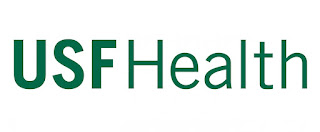Despite Katie Couric’s Advice, Doctors Say Ultrasound Breast Exams May Not Be Needed



Despite a recommendation by the World Health Organisation (WHO) that typhoid vaccines be considered for the control of endemic disease and outbreaks, uptake has remained limited in certain pockets of society including the Apostolic Sect.
Apostolic Women Empowerment Trust (AWET) works with all Apostolic groups and is very much aware of the risks that the Apostolic community faces with regards to typhoid. The Apostolic sect constitutes plus 38 percent of the total Zimbabwean population and is among the high incidence groups.
Therefore, targeted interventions have been done and are still being done in Apostolic communities to help raise awareness on typhoid as a way of enhancing behaviour change.
Studies suggest that vaccines alone are unlikely to eliminate endemic disease in the short to medium term without sustained, long term behavioural change. While vaccines can reduce disease burden substantially when introduced it is only effective when it is coupled with improvements in access to safe water, sanitation and hygiene practices.
Although largely controlled in other developed countries, typhoid remains endemic in many parts of the world and Zimbabwe is one country which is affected. Typhoid is an important cause of febrile illness in crowded, low-income settings and since the Apostolic community falls under the lowest wealth quantile bracket, the risk of getting typhoid is high for members who use the bush system when at prayer sites and shrines.
A notable feature of typhoid is the presence of the bacteria in the stool or urine for a long period of time. This is a cause of concern as the Apostolic members use unsafe water sources and defecate in open spaces as they do not have ownership to the open spaces they use as prayer sites hence they cannot build toilets. Most of the time when mass gatherings happen, the bush is used as a form of toilet and water is obtained from rivers and shallow wells.
AWET believes that the mass vaccinations being encouraged and administered can save lives in the Apostolic communities and protect future generations.
However, they should not be used as a distraction from improvements in sanitation and hygiene by members of the Apostolic community hence the targeted awareness campaigns on behaviour change that continue to be done.
The many risk factors that have been identified in the Apostolic communities continue to be addressed in the targeted interventions that are still being carried out. We encourage members of the Apostolic community in the targeted communities to practice safe hygiene which includes, but is not limited to use of safe treated water to drink, desisting from using the same "mbiya" for healing purposes, washing of hands thoroughly after using the toilet, before eating and before preparing food.
The use of the bush as an alternative for toilets has been strongly discouraged and AWET believes targeted awareness on behaviour change and acceptance of vaccinations and immunisations during mass church gatherings has been encouraged and members have been told to make sure the environment is clean and food preparation areas are hygienic.
Since Apostolic members worship in open spaces with no sanitation facilities, it was important to reiterate that they should boil it or treat it with a chlorine product or household bleach as a way of preventing the spread of typhoid and cholera.
Another risk factor that was identified by AWET within the Apostolic communities was the use of "mbiya" or water gourds for healing purposes which are used for all people regardless of their ailment.
AWET is taking part in the mass immunisation of typhoid. AWET has registered general nurses, mobilisers, facilitators who are making sure that the Apostolic members get the typhoid vaccine. It is imperative for Apostolic members to get the typhoid vaccine since they are the most susceptible due the risk factors mentioned.
Typhoid is still a major problem in the country and official figures from the Ministry of Health and Child Care indicate that more than 6 675 suspected cases of typhoid, 181 confirmed cases and 11 deaths were reported countrywide between a typhoid outbreak which started in October 2017 in Harare and others in 2018.
Tendayi Gudo, is the AWET National Coordinator. Email [email protected]
Comments
Post a Comment